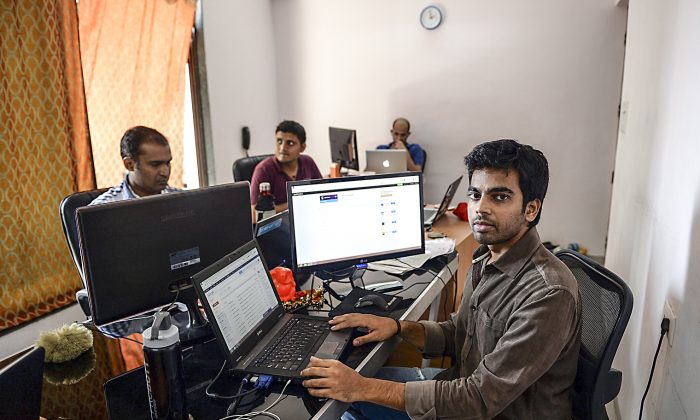Software developers are in high demand today. However, finding the right talent for your software development team can be challenging. In this article, we will explore some of the best ways how to hire software developers in India and other countries.
Why hire developers in India?
Hiring software developers in India is a popular choice for many companies. The first reason for this is that India has a large pool of highly qualified software developers who are willing to work for lower salaries than their counterparts in the United States and other Western countries.
Another reason why you might want to hire developers in India is cost savings. While you’ll need to pay for travel, lodging and other expenses related to bringing your team together (and there’s no guarantee that doing so will save money), hiring remotely can help keep costs down overall because it eliminates certain expenses associated with having employees on-site at your office every day (such as office space rentals). In addition, if you’re looking for someone who has experience working remotely before–whether they’ve done so through an employer or on their own time–you may find them easier to find overseas than locally where competition tends toward those willing or able enough not only accept but embrace this kind of arrangement while others stick firmly with traditional arrangements like commuting every morning before coming home again each evening.”
Hire developers in India: key items that should be borne in mind
Hiring the right developer is crucial for your business. It’s important to find someone who understands your needs and has the skillset to meet them.
If you’re looking for software developers in India, there are several things that should be borne in mind:
- Finding the right developer can be difficult because there are so many options available on the market today–from freelancers who work remotely all over the world through international recruitment agencies like Upwork or Toptal; from local startups that hire their staff from nearby colleges with good reputations (like IIT Bombay); or even large companies such as Google India Limited where employees have access to some of the best facilities in Asia! The choice depends on what kind of company culture suits your needs best as well as how much money is available within your budget range.*
General myths about hiring developers in India
When you are hiring software developers in India, there are some myths that you should be aware of. These general myths can cause you to make bad decisions and waste money.
Here are the top three general myths about hiring developers in India:
Myth 1: Low Quality of Work One prevailing myth is that developers from India offer subpar quality work. In reality, India has a vast pool of talented developers with diverse skill sets. Many Indian developers are highly qualified, well-versed in cutting-edge technologies, and have experience working on global projects.
Myth 2: Language Barrier Another misconception is that language barriers may hinder effective communication. While English might not be the first language for all developers, the majority are proficient in English. Language barriers can be easily overcome by clear communication and the use of collaborative tools.
Myth 3: Limited Technical Expertise Some assume that developers in India lack the expertise required for complex projects. However, India’s IT education system produces a significant number of skilled graduates in various technical domains. Additionally, Indian developers often stay updated with the latest technologies and trends through continuous learning.
Myth 4: Time Zone Challenges Concerns about time zone differences causing delays in project coordination are prevalent. While there might be some overlap, it can also be advantageous to have a development team working on tasks round the clock, leading to faster project completion.
Myth 5: Lack of Cultural Fit The notion that Indian developers may not fit into Western work cultures is not accurate. Many Indian developers have experience collaborating with international clients and adapt well to different work environments and cultures.
Myth 6: High Employee Turnover There is a belief that developers from India frequently switch jobs, leading to project disruptions. While attrition rates can vary, many companies implement effective retention strategies to maintain a stable and committed workforce.
Myth 7: Intellectual Property Concerns Some fear that intellectual property rights might not be adequately protected in India. However, reputable development companies in India often sign legally binding agreements to safeguard clients’ intellectual property and maintain confidentiality.
Myth 8: Cost-Only Focus Choosing Indian developers solely based on cost is a common myth. While cost-effectiveness is an advantage, businesses should prioritize factors like skill sets, experience, and communication capabilities when hiring developers.
Where to look for Indian developers?
There are several places to look for Indian developers. You can start with some of the popular freelancing websites, like Upwork and Freelancer. You can also search for them on social media or at meetups in your area.
LinkedIn is another great place to find developers, especially those who have been working on tech products for a while and have good recommendations from previous employers. Stackoverflow provides more than just answers to programming problems; it’s also a great place where developers share their knowledge about best practices in coding and other technical topics that affect their work every day!
A few steps you can take to hire software developers in India.
There are a few steps you can take to hire software developers in India.
- Define Your Requirements: Start by clearly outlining the skills, experience, and qualifications you need in a software developer. Determine the specific programming languages, frameworks, and technologies required for your project.
- Research and Shortlist: Conduct thorough research to identify reputable software development companies or freelance developers in India. Shortlist candidates based on their portfolios, reviews, and experience in projects similar to yours.
- Conduct Virtual Interviews: Schedule virtual interviews with the shortlisted candidates. Use video conferencing to assess their technical skills, problem-solving abilities, and communication skills. This step will help you gauge their suitability for your project.
- Check References: Request references from the candidates and follow up with them to gather insights into the developers’ work ethics, reliability, and performance on previous projects.
- Assess Cultural Fit: Consider how well the candidate aligns with your company’s work culture and values. A good cultural fit is crucial for seamless collaboration and successful project outcomes.
- Clarify Payment Terms: Discuss the payment terms, project milestones, and overall cost with the selected candidate or company. Ensure that both parties are clear about financial arrangements before proceeding.
- Sign Legal Agreements: Draft a comprehensive contract that outlines project details, deliverables, timelines, intellectual property rights, and confidentiality clauses. Having a legally binding agreement protects both parties throughout the development process.
- Establish Effective Communication: Set up efficient communication channels to facilitate regular updates, feedback, and collaboration with the developers in India. Choose communication tools that suit both parties’ preferences and time zones.
- Monitor Progress Regularly: Maintain regular check-ins with the developers to monitor project progress. Encourage open communication and address any issues or concerns promptly.
- Foster Long-Term Partnerships: If your project is ongoing or requires continuous development and maintenance, consider building a long-term partnership with the software developers in India. Cultivating a strong working relationship can lead to successful collaborations in the future.
Conclusion
If you are looking to hire software developers in India, there are many things that you need to know. First and foremost, this is a very competitive market where there are many companies vying for the same talent pool. Therefore, it is important that you understand what sets your company apart from others so that potential candidates can see why they should work for you instead of someone else who might offer similar opportunities but with less exposure or prestige within their industry.


